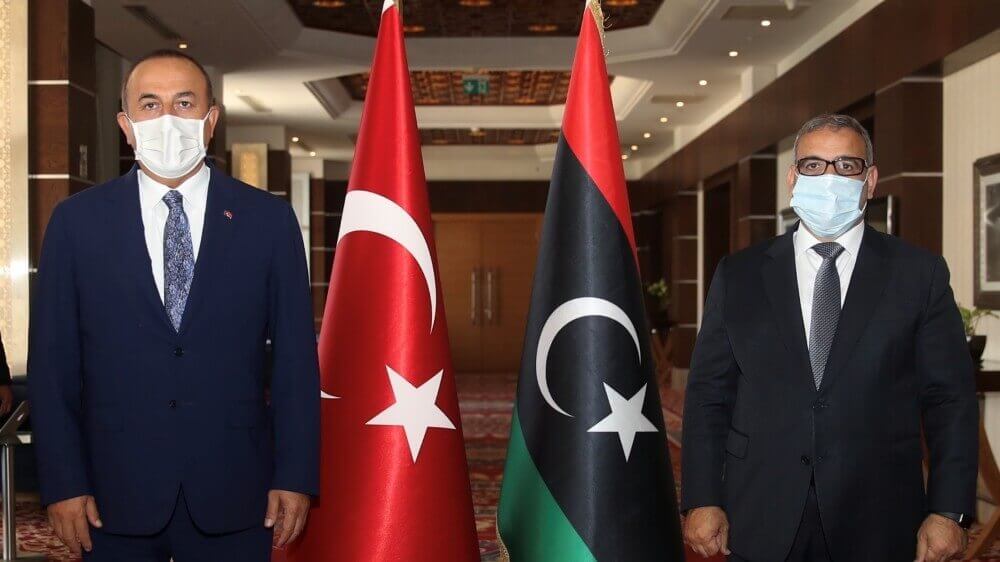On Thursday, Turkey’s Foreign Minister Mevlut Cavusoglu slammed Germany's decision to participate in a European Union-led (EU) supervision of an international arms embargo in Libya. Cavusoglu was on a visit to Tripoli for discussions with the United Nations-recognized (UN) Government of National Accord (GNA) leader Fayez al-Sarraj, whom Ankara has been closely supporting so far.
In his comments to local media houses after the meeting, Cavusoglu accused German authorities of compromising their neutral position in the conflict after Berlin on Tuesday sent a frigate of 250 soldiers to take part in the EU mission Irini.
Irini is an operation that was launched by the bloc in May in an attempt to block weapons from entering Libya. It also involved a systematic information gathering system on the country’s illegal oil exports and to disrupt the smuggling of people in the region. Earlier in July, German Chancellor Angela Merkel, French President Emmanuel Macron, and Italian Prime Minister Giuseppe Conte published a joint statement on Libya at a meeting that was called to discuss the EU’s post-COVID recovery plan. The statement said that Libya was facing a “heightened risk of regional escalation”, and urged the international community to refrain from any violent activities or support to such acts in Libya.
Currently, Turkey backs the GNA and has deployed troops in the country since April in a military cooperation deal to fend off the offensive by renegade general Khalifa Haftar’s Libyan National Army (LNA), which is supported by Russia, Egypt, and the United Arab Emirates. Libya has been engaged in a civil war between the Tripoli-based GNA and the LNA since the ousting of Muammar Gaddafi in 2011, with Haftar’s forces launching a full offensive against Tripoli since April 2019. Ankara’s involvement and support to the GNA have angered Haftar since last year, with the leader banning commercial flights between the two countries, prohibiting Turkish ships from docking at Libyan coasts, and threatening to arrest Turkish citizens last June.
Cavusoglu described Irini as a “biased operation”, and urged Germany to be “neutral and objective”, since it was the host of the international Libyan conflict conference in January. He further mentioned that Berlin's involvement in the conflict would make the situation “more complicated”.
Most recently, the GNA with Turkey’s support has begun to press towards seizing the strategic city of Sirte located east of Tripoli, in a bid to control the coastal city and its inland airbase, al-Jufra. Such a move would provide an opportunity for the GNA to advance further towards the east and potentially control crucial oil terminals and fields that are currently under the control of Haftar and the LNA. Last week, Egypt’s parliament hinted at possibly intervening militarily and supporting the LNA in the conflict if the GNA tries to enter Sirte. The clash of foreign actors at this scale has the potential to destabilize Libya extensively.

